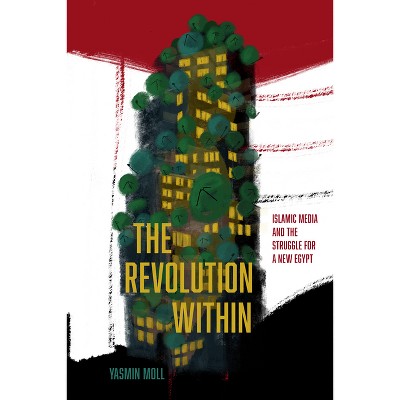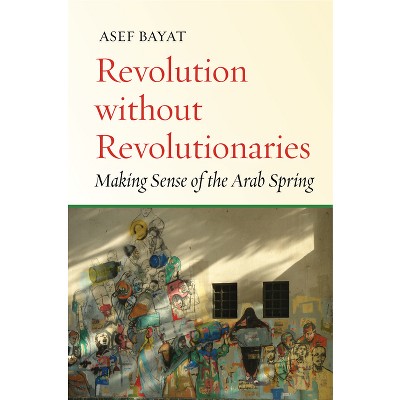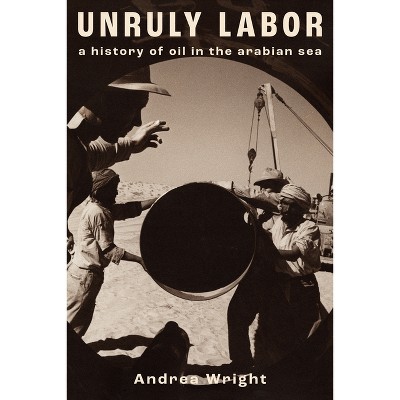Sponsored

The State of Lebanon - (Stanford Studies in Middle Eastern and Islamic Societies and) by Ziad Abu-Rish
Pre-order
Sponsored
About this item
Highlights
- Lebanon gained its formal political independence in 1943.
- About the Author: Ziad Abu-Rish is Associate Professor of Human Rights and Middle East Studies at Bard College.
- 352 Pages
- History, Middle East
- Series Name: Stanford Studies in Middle Eastern and Islamic Societies and
Description
About the Book
"Lebanon gained its formal political independence in 1943. During the dozen years that followed, women and men across class, sectarian, geographic, and ideological divides built, challenged, and reformed the institutional arrangements that would shape the country. With this book, Ziad Abu-Rish traces shifting patterns of alliances and conflict that shaped the material and representational production of the Lebanese nation-state. Exploring labor regimes, women's suffrage, the provision of electricity in Beirut, public education, and the armed forces--and the meetings, lectures, pamphlets, delegations, and protests they produced--Abu-Rish demonstrates how elite and popular groups mobilized normative ideas about independence and state power. The State of Lebanon offers a new social and institutional history of post-colonial Lebanon. Abu-Rish challenges common narratives of an absent, weak, or failed state. Instead, state institutional arrangements emerge as objects and subjects of political mobilization by politicians, bureaucrats, party activists, students, and workers. Rather than read history backward from the present, he approaches the past on its own terms. In so doing, Abu-Rish offers significant insights into politics, social life, and the state in Lebanon--grounded in the early post-independence period yet critical to how we understand Lebanon today"-- Provided by publisher.Book Synopsis
Lebanon gained its formal political independence in 1943. During the dozen years that followed, women and men across class, sectarian, geographic, and ideological divides built, challenged, and reformed the institutional arrangements that would shape the country. With this book, Ziad Abu-Rish traces shifting patterns of alliances and conflict that shaped the material and representational production of the Lebanese nation-state. Exploring labor regimes, women's suffrage, the provision of electricity in Beirut, public education, and the armed forces--and the meetings, lectures, pamphlets, delegations, and protests they produced--Abu-Rish demonstrates how elite and popular groups mobilized normative ideas about independence and state power.
The State of Lebanon offers a new social and institutional history of post-colonial Lebanon. Abu-Rish challenges common narratives of an absent, weak, or failed state. Instead, state institutional arrangements emerge as objects and subjects of political mobilization by politicians, bureaucrats, party activists, students, and workers. Rather than read history backward from the present, he approaches the past on its own terms. In so doing, Abu-Rish offers significant insights into politics, social life, and the state in Lebanon--grounded in the early post-independence period yet critical to how we understand Lebanon today.
Review Quotes
"The State of Lebanon is the impressive culmination of sustained, thought-provoking research on Lebanon. Through Ziad Abu-Rish's analysis, we come to understand both the competing political visions associated with state-building and the various popular struggles that at times challenged dominant institutional aspirations. Far from being a case of Lebanese exceptionalism, the patterns he identifies are of central importance to scholars of state-formation more generally."--Lisa Wedeen, University of Chicago
"The State of Lebanonis one of the most thoroughly and comprehensively researched books I have ever read. This, combined with Ziad Abu-Rish's analytical rigor, means that this groundbreaking work will undoubtedly become a major(if not the major) work of reference on Lebanese history post-independence."--Ilham Khuri-Makdisi, Northeastern University
"Ziad Abu-Rish frees the reader from the bias of hindsight, examining the politics of early independence Lebanon on their own terms. This immersive account offers anilluminating social, institutional, and political economic history of 1943-55, a critically understudied period, and reshapes our understanding of Lebanon's past and present."--Nisreen Salti, American University of Beirut
About the Author
Ziad Abu-Rish is Associate Professor of Human Rights and Middle East Studies at Bard College.Shipping details
Return details
Trending Non-Fiction











